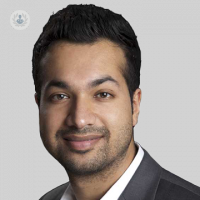Understanding different manifestations of ADHD
Written by:Attention deficit hyperactivity disorder (ADHD) is a common neurodevelopmental condition affecting millions of adults worldwide. While its name suggests a single entity, ADHD encompasses diverse presentations and experiences. Dr Shyamal Mashru, renowned consultant psychiatrist, looks into the three distinct types of ADHD, their unique characteristics, and the importance of recognising these variations for optimal care.

Exploring the spectrum of ADHD
1. Inattentive symptoms:
- difficulty focusing and sustaining attention on tasks
- frequent forgetfulness and misplaced items
- easily distracted by external stimuli
- difficulty following instructions and completing tasks on time
- daydreaming excessively
2. Hyperactive-impulsive symptoms:
- restlessness and fidgeting
- excessive talking and difficulty taking turns
- difficulty sitting still for extended periods
- tendency to blurt out responses before fully thinking them through
- taking unnecessary risks or engaging in impulsive actions
The three types of ADHD
1. Combined presentation (70-80% of cases):
Individuals with this type experience both inattentive and hyperactive-impulsive symptoms to a significant degree. This combination can significantly impact various aspects of daily life, including academic performance, work productivity, and interpersonal relationships.
2. Predominantly inattentive presentation (10-15% of cases):
In this type, inattentive symptoms are more pronounced, whereas hyperactive-impulsive symptoms are less evident. Individuals may struggle with forgetfulness, difficulty concentrating and staying organised, but may not exhibit excessive energy or impulsivity.
3. Predominantly hyperactive-impulsive presentation (Rare):
This is the least common type, characterised by prominent hyperactive-impulsive symptoms with less emphasis on inattentiveness. Individuals may exhibit excessive energy, restlessness, and act impulsively, often leading to difficulties in structured environments or social settings.
The significance of recognising different presentations
- Tailored treatment: Accurately identifying the type of ADHD allows for personalised treatment plans. Medication, therapy, and behavioural strategies can be tailored to address the specific challenges faced by each individual.
- Improved functioning: Understanding the specific symptoms associated with each type can help individuals develop coping mechanisms and seek appropriate support systems, leading to improved academic, social, and professional functioning.
- Empowering individuals: Recognising the different presentations of ADHD empowers individuals to understand their experiences and advocate for themselves effectively.
The impact of ADHD: Beyond the individual
ADHD can significantly impact a person's life, extending far beyond the core symptoms of inattention and hyperactivity-impulsivity. Individuals with ADHD may struggle with organisation, time management and emotional regulation, leading to difficulties in academics, work and relationships. These challenges can lead to feelings of frustration, low self-esteem and anxiety, impacting their overall wellbeing and quality of life.
The impact of ADHD often extends to the family and loved ones of individuals with the condition. The constant need for structure, potential for disruptions due to hyperactivity, and communication difficulties can create strain on family dynamics and relationships. Parents and partners may experience feelings of overwhelm, frustration and guilt, highlighting the importance of support systems and effective communication within the family unit.
If you suspect you or someone you know might have ADHD, seeking professional help is necessary. The ADHD Health Clinic offers comprehensive assessments, diagnosis, and ADHD treatment plans tailored to address individual needs. With a combination of evidence-based therapies, medication management, and educational resources, the clinic empowers individuals with ADHD to manage their symptoms, develop coping mechanisms, and thrive in all aspects of life.
For further information reach out to the ADHD Health Clinic profile on Top Doctors today, try the FREE online ADHD screening tool, or book an ADHD assessment.


